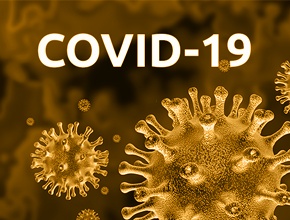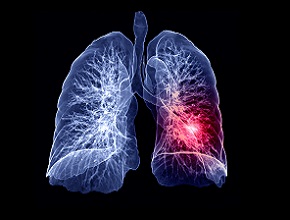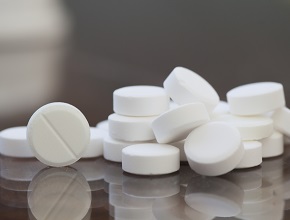Molnupiravir in the treatment of nonhospitalized patients with COVID-19
For a McMaster Perspective interview with Dr Bram Rochwerg on the results of the trial, click here.
Background: Molnupiravir is a novel oral antiviral drug that aims to reduce the risk of disease progression in symptomatic nonhospitalized patients infected with severe acute respiratory syndrome coronavirus 2 (SARS-CoV-2) (coronavirus disease 2019 [COVID-19]). Molnupiravir is a small-molecule ribonucleoside prodrug of N-hydroxycytidine, which has activity against SARS-CoV-2 and other RNA viruses, with a mechanism of action that is independent of mutations in the SARS-CoV-2 spike protein.
Methods: MOVe-OUT was a randomized, double-blind, placebo-controlled trial that aimed to evaluate the efficacy and safety of treatment with molnupiravir in COVID-19. Eligible patients were nonhospitalized unvaccinated adults with mild to moderate laboratory-confirmed COVID-19. Patients had ≥1 risk factor for severe COVID-19, comprising age >60 years, active cancer, chronic kidney disease, chronic obstructive pulmonary disease, obesity (body mass index [BMI] ≥30 kg/m2), major cardiac disease (heart failure, coronary artery disease, or cardiomyopathy), or diabetes. Treatment was initiated within 5 days after the onset of signs or symptoms. Key patient exclusions were anticipated hospitalization within 48 hours, severe renal insufficiency (creatinine clearance <30 mL/min), and pregnancy. Patients received molnupiravir 800 mg or placebo twice daily for 5 days. The primary efficacy end point was the incidence of hospitalization or death at day 29; the primary safety end point was the incidence of adverse events at day 29. A prespecified interim analysis was performed when 50% of the target enrollment of 1550 patients had been followed through day 29.
Results: In total, 1433 patients were randomized (716 to molnupiravir, 717 to placebo), with baseline characteristics being similar in the 2 groups with the exception of patient sex. In the interim analysis the incidence of hospitalization for any cause or death through day 29 was significantly lower in patients who received molnupiravir than in those who were given placebo: 7.3% versus 14.1% (95% CI, –11.3 to –2.4). In the analysis of all patients who were randomized, the percentage of those who were hospitalized or died through day 29 was significantly lower in the molnupiravir group than in the placebo group: 6.8% versus 9.7% (95% CI, –5.9 to –0.1). Results of subgroup analyses, in general, were consistent with the overall study results; however, in some subgroups, such as patients with previous SARS-CoV-2 infection, those with low baseline viral load, and those with diabetes, the point estimate for the difference favored the placebo cohort. Through day 29, a single case of death was reported in the molnupiravir group and 9 cases in the placebo group. The incidence of adverse events did not significantly differ among patients who received molnupiravir (30.4%) or placebo (33%).
Conclusions: The authors concluded that early treatment with molnupiravir reduced the risk of hospitalization or death in at-risk, symptomatic, unvaccinated adults with COVID-19.
McMaster editors’ comment: The key clinical message is that molnupiravir should be considered in selected patients with symptomatic COVID-19 and major comorbidities in whom the potential for therapeutic benefit is greatest; this benefit may be attenuated in patients infected with less severe SARS-CoV-2 variants (eg, Omicron) and in vaccinated patients.
 English
English
 Español
Español
 українська
українська










